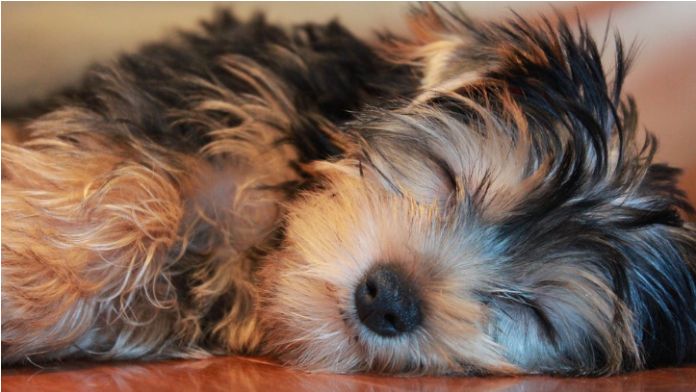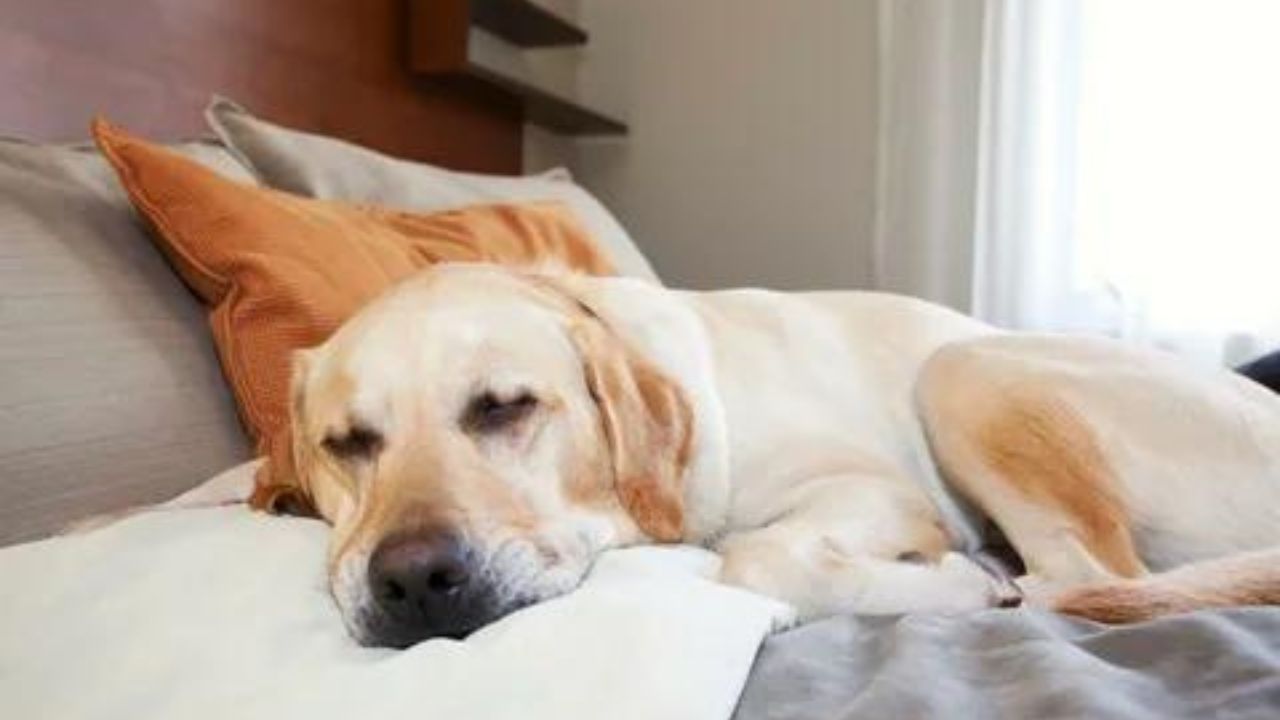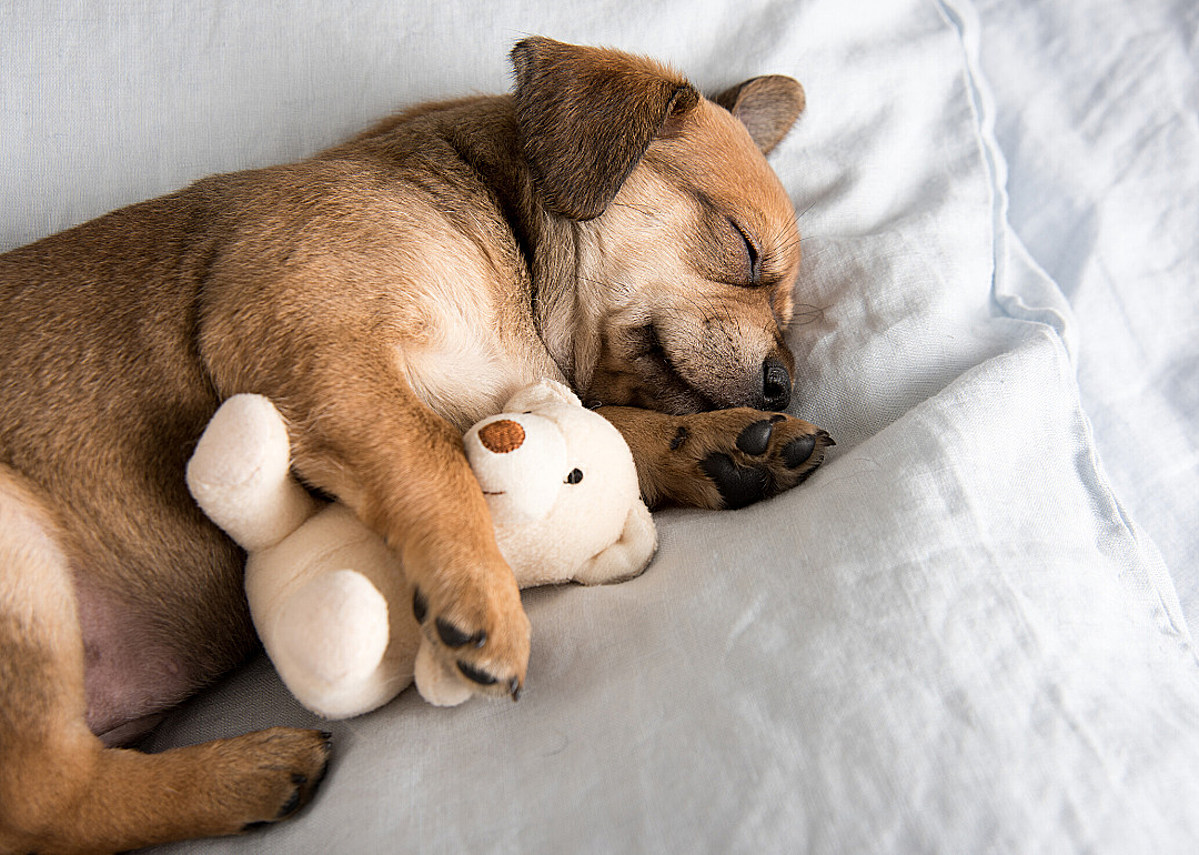
Welcome to the world of puppy ownership, where sleepless nights and interrupted slumber are part of the package deal. As much as we adore our furry little companions, their puppies snore loudly and can often leave us tossing and turning, wondering when we’ll ever get a good night’s sleep again. But fear not, puppy parents!
Let’s face it; puppies are adorable. With their big puppy eyes and wagging tails, they have a way of melting our hearts and keeping us up all night. But have you ever found yourself wondering why your little furry friend is snoring so loudly? and finally whining about their sleep Or when exactly it’s normal, and when it’s a cause for concern? Well, wonder no more! We’re here to answer all your puppy snoring-related questions.
As it turns out, snoring is not uncommon in puppies, and there are various reasons why it happens. Whether it’s due to allergies, infections, or how their airway is structured, puppy snoring can range from cute to concerning. But don’t worry; we’ve got you covered.
We’ll explore the ins and outs of puppy snoring, from its causes to its potential health implications, and provide you with tips and tricks for reducing it. So sit back, relax, and get ready to learn all about when puppies snore loudly.
Why Do Puppies Snore Loudly?
It’s a question that many puppy owners ask themselves as they listen to their furry little friends snuffling and snoring away throughout the night. The truth is several different factors can contribute to puppy snoring, and understanding these factors is key to identifying whether your puppy’s snoring is normal or something that requires veterinary attention. Here are some of the main causes of puppies’ snoring:
Structural Issues In The Airway
puppies can be born with structural issues in their airways that can lead to snoring. These can include an elongated soft palate, narrowed nostrils, or a smaller-than-average trachea. These structural abnormalities can cause air to be forced through a smaller space, resulting in noisy breathing and snoring.
Allergies
Allergies are a common cause of snoring in puppies. Allergens such as pollen, dust mites, or mold can cause nasal passages and throat inflammation, leading to snoring. Other symptoms of allergies in puppies may include sneezing, itching, or a runny nose.
Respiratory Infections
Puppies are susceptible to respiratory infections such as kennel cough, which can cause inflammation and irritation in the airway. This inflammation can cause snoring, as air is forced through a narrow and swollen passage.
Overweight Or Obesity
excess weight can lead to snoring in puppies. When puppies are overweight or obese, they may have excess tissue in their airway that can obstruct airflow, leading to snoring.
Sleeping Position
Like in humans, sleeping on one’s back can cause the tongue and soft palate to collapse towards the back of the throat, causing snoring. Encouraging your puppy to sleep on their side may help reduce snoring caused by sleeping position.
When Do Puppies Snore Loudly?
It’s important to understand why puppies snore in the first place. Just like in humans, snoring occurs when the flow of air through the nose and mouth is partially obstructed during sleep. In puppies, this obstruction can occur for various reasons, including allergies, infections, obesity, or just the natural structure of their airway. puppies may snore more during certain activities, such as after exercise or sleeping in a certain position.
So when do puppies snore loudly? This can vary from puppy to puppy, but generally speaking, if the snoring is loud enough to be heard from another room or is accompanied by gasping or choking sounds, it may be cause for concern. Additionally, if snoring disrupts the puppy’s sleep or causes them to wake frequently throughout the night, it may also be a problem.
When Is The Puppies Snoring Normally?
Knowing what’s normal and not can be difficult regarding puppy snoring. After all, puppies are known for being noisy sleepers, but at what point should we start to worry? This section will examine when puppy snoring is normal and what factors can affect it.
First and foremost, it’s important to understand that puppy snoring is generally more common in certain breeds and age ranges. For example, flat-faced breeds like pugs, bulldogs, and boxers are more prone to snoring due to their unique facial structure, which can cause breathing difficulties. Additionally, puppies between 3 and 6 months old are more likely to snore because their airways are still developing and can become congested more easily.
Regarding the circumstances in which puppies may snore more often, it’s important to consider factors like sleep position, environment, and activity level. Similarly, if your puppy is in a dusty or humid environment, it may be more likely to snore due to allergies or congestion.
The duration and volume of puppy snoring can also indicate whether it’s normal. In general, normal puppy snoring is short-lived and not overly loud. If your puppy snores loudly and continuously throughout the night, it may be a sign that an underlying issue must be addressed.
It’s also important to note that other factors, such as diet and exercise, can affect puppy snoring. If your puppy is overweight or not getting enough exercise, it may be more prone to snoring due to excess weight and lack of muscle tone.
While puppy snoring can be concerning, it’s important to remember that it’s often a normal part of puppyhood. However, if you have concerns about your puppy’s snoring, it’s always best to consult your veterinarian to rule out any underlying health issues.
When Puppies Snore Loudly A Cause For Concern?
While snoring is common in puppies, it’s important to pay attention to the type and frequency of the snoring to determine whether it’s a cause for concern. Snoring can sometimes indicate an underlying health issue that requires veterinary attention. Here are some signs to look out for:
Loud, Persistent Snoring
While puppies may snore occasionally, persistent loud snoring interferes with their sleep, which is abnormal. It could be a sign of a blocked airway or other respiratory issues.
Changes In Breathing Patterns
If your puppy is experiencing difficulty breathing or has started breathing through their mouth instead of their nose, it’s time to consult a veterinarian.
Restlessness Or Sleep Disturbance
If your puppy seems agitated, restless or has trouble sleeping due to snoring, it could indicate an underlying health issue.
Other Symptoms
Puppies who snore excessively may also exhibit coughing, wheezing, or gasping for air. These symptoms could be signs of a respiratory infection or other health conditions.
If you notice any of these signs, it’s important to consult with a veterinarian to rule out any serious health issues. Your vet may recommend a physical exam, X-rays, or other diagnostic tests to determine the cause of the snoring.
Several potential causes of excessive snoring in puppies include obesity, allergies, and respiratory infections. Some breeds are also more prone to snoring due to their facial structure. If your puppy is diagnosed with a health condition causing snoring, your vet may recommend lifestyle changes or medications to reduce symptoms.
Tips For Reducing Puppy Snoring
Your puppy’s snoring keeps you awake at night. But before you resign yourself to a lifetime of sleepless nights, you can do a few things to help reduce your pup’s snoring.
Keep Your Puppy At A Healthy Weight
Being overweight can contribute to snoring in puppies. Ensure your puppy gets the right exercise and eats a balanced diet. Ask your vet if you need help determining how much to feed your pup.
Change Your Puppy’s Sleeping Position
Believe it or not, changing how your puppy sleeps can help reduce snoring. Elevating their head with a pillow can help keep their airway open and reduce snoring. Continue to know the sleeping routine.
Use a Humidifier
Dry air can irritate your puppy’s throat and nasal passages, making them more prone to snoring. A humidifier in your puppy’s sleeping area can help keep the air moist and reduce snoring.
Keep Your Puppy’s Sleeping Area Clean
Dust, dirt, and other allergens can cause nasal congestion and contribute to snoring. Make sure your puppy’s sleeping area is clean and free of debris.
Address Any Underlying Health Issues
If your puppy’s snoring is particularly loud or frequent, it may indicate an underlying health issue. Talk to your vet about your concerns, as they may recommend treatment options or further testing to identify potential health problems.
Remember, these tips are just a starting point. Every puppy is different, so what works for one may not work for another. If you’re having trouble reducing your puppy’s snoring, don’t hesitate to contact your vet for additional guidance and support. With a little effort and some trial and error, you can help your pup sleep more soundly – and get some much-needed rest yourself!
Conclusion
Puppy snoring is a common occurrence that various factors can cause. While it may be cute or even endearing at first, excessive or abnormal snoring can be a sign of an underlying health issue that requires medical attention. By understanding when puppy snoring is normal, and when it’s not, you can better assess whether your furry friend needs to see a veterinarian.
Also, Fortunately, there are various lifestyle changes and home remedies that you can try to help reduce your puppy’s snoring. Above These simple tips can make a big difference in your puppy’s snoring patterns, from elevating their head while they sleep to using humidifiers.
FAQ
Why Does My Little Dog Snort Like A Pig?
Certain dogs experience a condition known as paroxysmal respiration, commonly called reverse sneezing. In this, the dog rapidly inhales air through the nose, creating a snorting sound akin to trying to inhale while sneezing.
Do Dogs Start Snoring With Age?
When dogs lie down, the soft palate at the back of their throat relaxes, and the weight and sleeping position can exert pressure on their airways. Snoring is commonly linked with older dogs due to the loosening of the soft palate and larynx muscles over time.
Should I Worry About My Puppy Snoring?
However, suppose your pup is either snoring more loudly than usual or didn’t use to snore but is now snoring consistently. In that case, you should consult with your local veterinarian to determine whether there is an underlying health condition that is negatively impacting your sleep.
Is My Puppy Snoring Or Wheezing?
Noisy breathing is described as stertor and stridor. Stertor is an inspiratory snoring or gasp. Stridor is a raspy, wheezing, or vibrating sound upon inhalation (most common) and exhalation. Noisy breathing can indicate many different medical issues.
Do Dogs Snore When They Are Happy?
It’s Just Who They Are!
If your dog is happy, healthy, energetic, and eating well, snoring could indicate that she’s enjoying a good quality of life.
Is It Normal For A Puppy To Snore Loudly?
Should I be worried about my puppy snoring? Snoring is a very normal behavior for many dogs, so your dog sounding like a foghorn isn’t usually anything to worry about. However, brachycephalic breeds that have problems with their soft palate or small nostrils can have problems as their airway is restricted.








